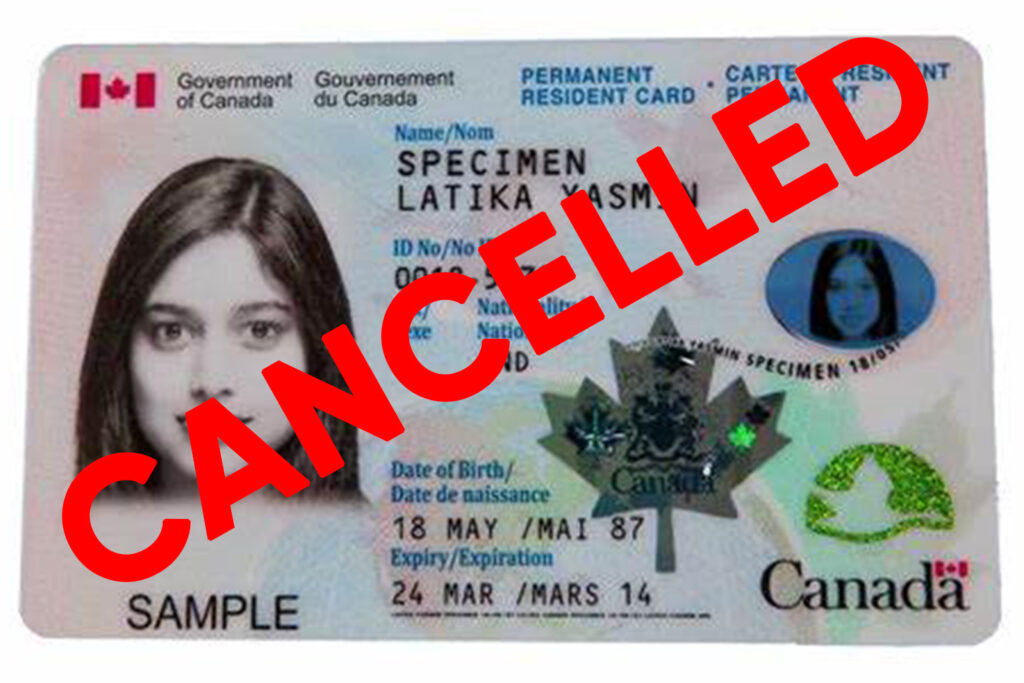New Regulations for the Cancellation of Temporary Resident Documents in Canada.
There is a new IRCC update regarding Canada immigration news, including new rules for international students and the Post-Graduation Work Permit (PGWP).
Canada has implemented strict new regulations for cancelling temporary resident documents to enhance border security and uphold the integrity of its immigration system.
Recent changes by Immigration, Refugees and Citizenship Canada (IRCC) grant officers the authority to cancel electronic travel authorizations (eTAs), temporary resident visas (TRVs), and work or study permits under certain conditions.
Here’s what temporary residents need to know about the recent changes and how they can navigate or work around them.

On February 12, 2025, the IRCC announced changes to the Immigration and Refugee Protection Regulations, and the Canada Gazette II officially published these updates. The main objective of these amendments is to provide immigration and border services officers with clearer and stronger authority to address issues related to temporary resident documents.
Reasons for the cancellation of a temporary visa may include:
- Document Issues: If the document is lost, stolen, destroyed, or abandoned.
- Risk of Overstay: If an officer suspects that the individual may not depart Canada by the end of their authorized stay.
- Ineligibility or Inadmissibility: If a person’s situation changes, they are ineligible for entry into Canada (e.g., providing false information, having a criminal history, or death).
- Administrative Errors: If the document was issued mistakenly.
- Change in Status: When someone becomes a permanent resident or has passed away.
Strategies for Temporary Residents to Successfully Navigate the New Regulations
For individuals currently in Canada or planning to visit, here are strategies to navigate the new regulations:
- Maintain Good Standing: Ensure that all information provided to IRCC is accurate. Any changes in status, such as marriage, job changes, or address updates, should be reported promptly.
- Example: If you have changed your criminal record or health condition, update your information with IRCC to avoid unexpected visa cancellations.
- Stay Updated: Regularly check the IRCC website and subscribe to updates for any changes in policies or procedures that may affect your status.
- Contingency Planning:
- Overstay Avoidance: If your visa is nearing expiration, apply for an extension early. If you are uncertain about your stay, consult an immigration lawyer to explore options like applying for permanent residency if you are eligible.
- Document Security: Always keep your documents secure. If you lose your documents or they get stolen, immediately report it to the police and the IRCC to get replacements or cancel the lost documents. This helps prevent identity theft.
- Legal Assistance: Consulting with an immigration lawyer can clarify whether you can contest the cancellation or explore options for re-entering Canada under different terms.
- Know Your Rights: If your visa gets canceled, you have the right to be informed of the reason. If the cancellation was due to an administrative error, you may be eligible to appeal or reapply.
- Compliance with Visa Terms: Follow the terms of your visa or permit carefully. For example, if your study permit specifies conditions regarding course load, ensure you meet them to avoid any problems.
Implications for Temporary Residents and Travelers
The purpose of these regulations is to:
- Protect Public Safety: Quickly addressing situations where a person may become a threat due to new information or changing circumstances.
- Enhance Border Security: Allowing only individuals who satisfy Canada’s entry requirements to cross its borders, thereby reducing potential security risks.
- Maintain Program Integrity: Preventing the exploitation of visa programs through fraudulent practices or by overstaying.
The Impact on Canada’s Immigration
- Security at the Forefront: This initiative aims to secure borders while Canada remains welcoming to legitimate visitors, students, and workers.
- Potential for Legal Challenges: There may be instances where individuals or groups challenge these cancellations, resulting in legal scrutiny that could refine or change the application of these new powers.
- Economic and Social Benefits: Canada aims to maintain the integrity of its immigration system to attract the talent and visitors it requires for economic and cultural prosperity, all while ensuring security is not compromised.
Canada’s recent immigration policy change highlights its dedication to securing borders while remaining a land of opportunity.
Understanding the Policy Changes With Real-Life Scenarios
Imagine you’ve applied for a visa to visit Canada for a holiday. Under the new rules:
- Scenario 1: If you are granted a study permit and enter Canada, and it turns out that your educational institution is not recognized or has closed down, authorities may revoke your permit because you are not eligible to study.
- Scenario 2: If you are convicted of a crime after obtaining your visa or entering Canada, authorities may cancel your visa because of inadmissibility.
- Scenario 3: If there was an error in issuing your document, such as a clerical mistake, it could be cancelled or corrected.
- Scenario 4: If you choose to become a permanent resident of Canada, your previous temporary documents, such as work or study permits, will be cancelled since you are now pursuing permanent residency.
- Scenario 5: If your passport with your visa or eTA is lost or stolen, those documents may be cancelled to prevent misuse.
These changes are designed to balance openness with security, ensuring that Canada remains a safe and desirable destination for individuals who have good intentions and meet the necessary criteria.
For temporary residents, staying informed, compliant, and proactive in managing your immigration status can help you navigate these new rules effectively.







